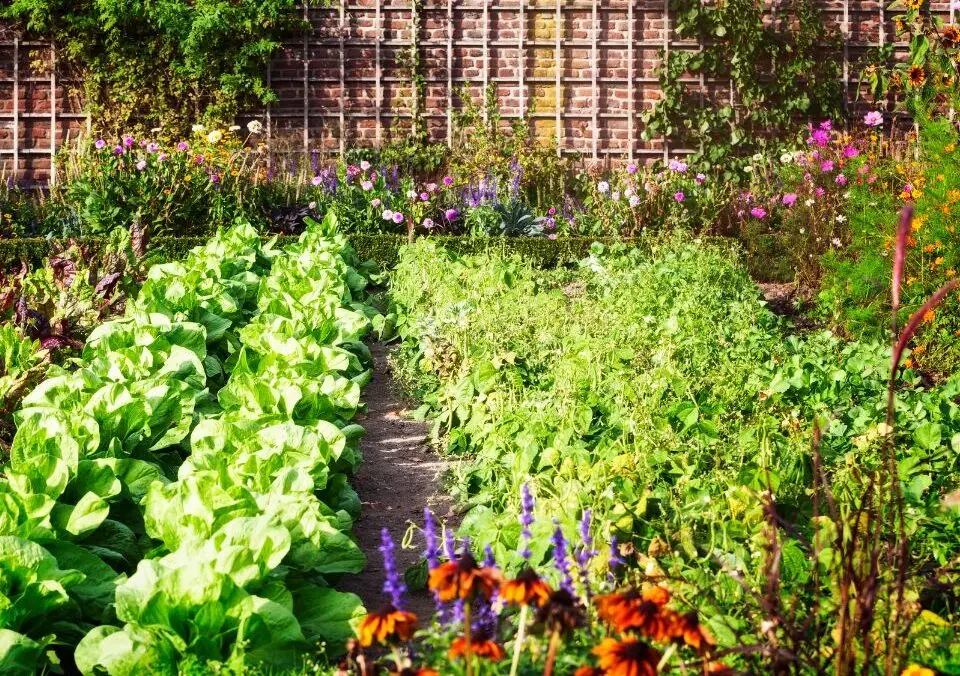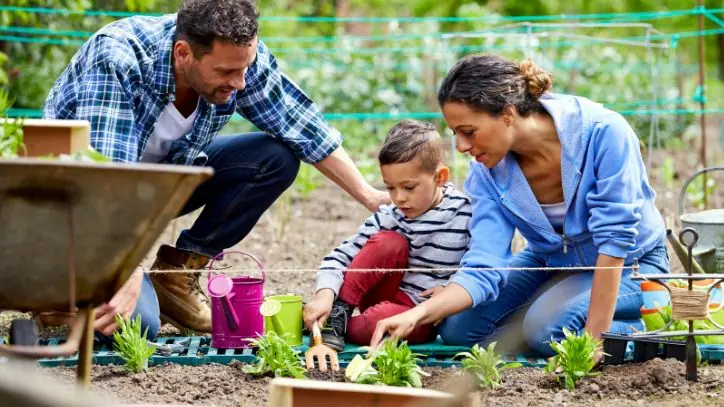Blog
Gardening Provides Many Health Benefits

Gardening has been an integral part of many cultures around the world for thousands of years. For as long as I can remember, my mom has always loved gardening. She has a knack for nurturing plants and creating flourishing gardens that not only beautify our surroundings but also provide us with fresh produce. Whenever I get the chance, I love to help her pick vegetables, water the plants, and even pull weeds. There is something inherently rewarding about being outside in the sun, working the soil, and watching the fruits of your labor grow. The experience is both relaxing and enjoyable. According to a recent study published in The Lancet Planetary Health, gardening is not only enjoyable but also beneficial to our health in numerous ways.
The Joy of Gardening
Gardening can be a therapeutic activity that allows people to connect with nature, which has been shown to have a variety of mental health benefits. The act of digging in the dirt, planting seeds, and nurturing plants can help us feel more grounded and connected to the world around us. The process itself can be a form of exercise, lowering stress levels while also providing a sense of accomplishment.
In Arizona, fall and winter gardening is particularly enjoyable, as the cooler temperatures create a more inviting environment for both novice and experienced gardeners. The state’s mild winters offer a unique gardening opportunity that can lead to a bountiful harvest just when most other places are in the depths of winter. For those interested in maximizing their gardening success depending on the season, Fill Your Plate’s seasonal charts provide invaluable guidance on what vegetables and fruits grow best during specific times of the year.

Health Benefits of Gardening
Reduced Stress and Anxiety Levels
One of the most significant benefits of gardening is its ability to reduce stress and anxiety. In today’s fast-paced world, many people experience levels of stress that can affect their mental and physical health. Engaging in gardening allows for a temporary escape from everyday pressures. The sensory experience of being outside, surrounded by nature, allows individuals to focus on the task at hand rather than their worries.
A study by the University of Exeter found that participants who engaged in gardening reported lower levels of stress compared to those who engaged in other types of leisure activities. The study participants who spent at least 30 minutes a week gardening experienced significant reductions in cortisol levels, a hormone associated with stress. This evidence suggests that incorporating gardening into your routine can lead to long-term improvements in mental health.
Increased Fiber Intake from Greater Vegetable Consumption
Gardening not only enhances mental well-being, but it can also lead to improved physical health by increasing vegetable consumption. Growing your own vegetables means that you are more likely to eat them, leading to increased fiber intake. Fiber is crucial for maintaining a healthy digestive system and has been linked to a reduced risk of chronic diseases such as heart disease and diabetes.
Additionally, home-grown vegetables are often fresher and more nutrient-rich than store-bought produce, which can sometimes lose its nutritional value during transportation and storage. A study from the Journal of Agricultural and Food Chemistry highlights that fresh produce can indeed have higher levels of vitamins and antioxidants when consumed shortly after harvest. This means that by cultivating our own gardens, we are not only enriching our diets but also ensuring we receive the maximum health benefits from our food.
Increased Physical Activity
Gardening is a form of moderate physical activity that can help improve overall physical fitness. Common gardening tasks such as digging, planting, weeding, and watering engage various muscle groups and can contribute to cardiovascular health. A study published in the Journal of Physical Activity & Health found that gardening can indeed be a significant contributing factor to meeting the recommended levels of physical activity in adults.
For instance, spending just a few hours a week tending to a garden can help boost your cardiovascular fitness, enhance muscular strength, and improve flexibility and balance. Given that gardening is an enjoyable, low-impact exercise, it can be a sustainable way for people of all ages to incorporate physical activity into their lives.
Reduced Inflammation and Improved Immune System
Regular physical activity, such as that found in gardening, has also been shown to reduce inflammation in the body. A study published in the Journal of Allergy and Clinical Immunology indicated that physical activity increases the body’s anti-inflammatory response. Reduced inflammation can lead to improved immune function, helping the body better fend off diseases.
This aspect of gardening is particularly relevant in the context of a society battling higher rates of chronic diseases. Engaging in physical labor can bolster not only our immune system but also enhance overall wellness by potentially warding off conditions like obesity and metabolic syndrome.
Improved Metabolism and Weight Management
Gardening provides a means of staying active, which is essential for maintaining a healthy metabolism and weight management. In a world where obesity rates are rising, finding enjoyable ways to stay fit is crucial. The combination of physical work involved in gardening and the nutritional benefits of homegrown produce comes together to create a powerful approach to managing body weight.
According to the World Health Organization (WHO), even moderate physical activity can aid in weight maintenance, reducing the risk of chronic diseases associated with obesity. Gardening allows individuals to engage in physical activity while enjoying the therapeutic benefits of nature, making it a win-win for maintaining a healthy lifestyle.
Nutritional Benefits of Homegrown Produce
The health benefits of gardening go beyond physical fitness and mental well-being. The nutritional advantages of growing our own fruits and vegetables are considerable. When we grow our own food, we have direct control over the growing conditions, including the use of pesticides and fertilizers. This not only contributes to better health for consumers but also ensures that we are mindful of our environmental impact.
Homegrown produce is often chosen based on personal preference, which encourages the consumption of a wider variety of fruits and vegetables. This can increase the intake of essential vitamins and minerals. According to research by the Center for Disease Control (CDC), increasing the diversity of fruits and vegetables in our diets is crucial for long-term health.
Moreover, gardening can cultivate a sense of responsibility and awareness about sustainable practices. Through gardening, individuals can learn the value of organic farming and the impact of agricultural practices on the planet, which can foster a deeper appreciation for the environment.
Resources for Gardening in Arizona
For those living in Arizona, there are ample resources available to help budding gardeners make the most of their efforts. The University of Arizona Cooperative Extension provides a wealth of information on gardening tailored specifically to the state’s unique climatic conditions. Their planting guides outline what to plant and when, ensuring that novices and seasoned gardeners alike can maximize their harvest.
In addition, the University offers a Master Gardener program that trains individuals to educate their communities about gardening and sustainable practices. This program not only fosters gardening skills but also encourages participants to share their knowledge and passion for gardening with others.
Furthermore, community gardening initiatives offer opportunities for individuals to come together, share resources, and create a supportive environment for learning. Such programs can enhance the social aspect of gardening, helping foster connections and friendships in the neighborhood.
Conclusion
In summary, gardening is much more than a hobby; it provides numerous health benefits that can enhance mental and physical well-being. The act of gardening not only nourishes the body with fresh produce but also helps reduce stress, increase physical activity, and foster a sense of community. Whether you are a novice gardener or a seasoned expert, the rewards of gardening are plentiful.
As we continue to navigate through the complexities of modern life, cultivating a garden can be a grounding experience that supports both our health and our environment. I hope you find inspiration to dig in and grow something beautiful!
If you’re interested in exploring more about gardening, don’t hesitate to check out the Fill Your Plate blog. There are countless articles that dive deeper into various aspects of gardening, tips for beginners, and seasonal gardening advice that could come in handy as you embark on your gardening journey. Now let’s get our hands dirty and start planting!
By Heide Kennedy, Arizona Farm Bureau Communications Intern


















